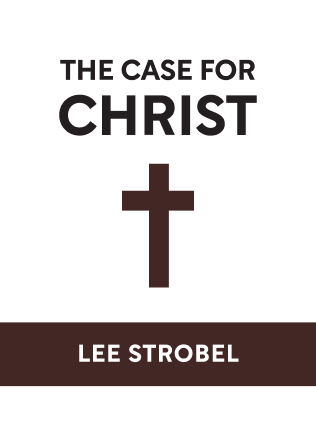

This article is an excerpt from the Shortform summary of "The Case for Christ" by Lee Strobel. Shortform has the world's best summaries of books you should be reading.
Like this article? Sign up for a free trial here .
What are the four gospels? Does the information in the four gospels support the idea that Jesus really existed?
The four gospels were written by Jesus’s disciples, and outline major events that happened in the life of Jesus. Some scholars believe the gospels can provide helpful evidence that Jesus was real, and was truly the son of God.
Keep reading to find out more about the four gospels.
Does the Historical Evidence Support the Accounts in the Four Gospels?
As convincing as Blomberg’s and Metzger’s arguments are, they do have one weak spot: They rely solely on the texts of the Christian tradition. If there were historical evidence for the 4 gospels’ account that didn’t originate with the Church, then the four gospels would be that much more credible.
Strobel pursues this line of inquiry by visiting Dr. Edwin Yamauchi, a professor at Miami University of Ohio and a renowned historian of the Mediterranean. Yamauchi participated in the 1968 excavation of the Herodian temple in Jerusalem (destroyed in 70 AD) and has published dozens of papers in scholarly journals. Although he was born into the Buddhist faith, he became a Christian in 1952, and helped explore the 4 books of the gospel.
Christian Corroboration
Secular histories aren’t the only sources to ground the 4 gospels of the Bible in fact—other books of the New Testament, as well as ancient Church documents, corroborate Jesus’s biographies, too.
Paul’s Letters
Recall that, though the gospels are the first books of the New Testament, they weren’t written first: that distinction goes to Paul’s letters (or “epistles”).
Because Paul’s letters comprise the earliest documents of Jesus’s life in the New Testament, they are the least likely to have been influenced by myth or legend. And the Jesus one finds in Paul’s letters is very similar to the Jesus of the four gospels: He’s described as the Messiah, and Paul attests to Jesus’s death, burial, and resurrection.
The fact that Paul, after witnessing the resurrection, worships Jesus as God is highly significant, for two reasons. One, Paul was Jewish, and to embrace Jesus as a God was anathema to Jewish monotheism (so he must have had a compelling reason, i.e., the Resurrection). Two, there’s a body of criticism that alleges Jesus’s deity was inserted into Christian doctrine by later adherents. Paul’s attestation to Christ’s deity undercuts that theory, thereby making Christ’s deity all the more certain.
The Apostolic Fathers’ Letters
In addition to the canonized epistles—that is, the letters included in the New Testament—there are also a number of letters written by the earliest Christians that corroborate the key facts of Jesus’s life and works. These epistles, whose authors are known as the “apostolic fathers,” include the Epistle of Polycarp, the Epistle of Barnabas, and the Epistle of Ignatius.
The Epistle of Ignatius is particularly enlightening. Ignatius, a Syrian bishop who was executed in 117 AD for his beliefs, testified not only that Christ was both human and God, but also that Christ was persecuted and crucified by Pilate and that he rose from the dead. The 4 books of the gospel provide this information.
What If the Four Gospels Didn’t Exist?
Given the wealth of secular and religious testimony to Jesus’s existence, even if the four gospels didn’t exist, we would know that:
- Jesus was a Jewish teacher.
- He healed the sick and performed exorcisms.
- Some people believed Jesus was the Messiah.
- He was scorned by the Jewish authorities of the time.
- He was crucified by Pontius Pilate.
- His followers continued to believe he was alive and adhere to his teachings, despite his shameful execution.
- His following spread widely.
- People from all levels of society worshipped him as a god.
Is the Historical Jesus the Same as the Jesus of The Four Gospels?
In the ’90s, a small group of New Testament scholars calling themselves the Jesus Seminar rose to prominence. These scholars studied the 4 books of the gospel. They were a tiny minority of New Testament experts, received a wealth of media coverage due to their idiosyncratic methods and radically new accounts of the Bible. For example, the group voted on the authenticity of each of Jesus’s sayings with colored beads; later, they published a book called The Five Gospels (the canonical four plus the Gospel of Thomas), which featured color-coded text reflecting their votes. 82% of the book was rendered in black, the color for words Jesus never said at all; only 2% of the book was in red, the color for words Jesus definitely said.
Given the attention paid to the Jesus Seminar in the media and their assertions of Jesus’s “materiality” (that is, his mortality rather than his deity), Strobel feels it’s vital to consider, and, hopefully, refute, the Jesus Seminar. To do so, he visits Dr. Gregory Boyd, a professor at Bethel College who received his graduate education in divinity at Yale and Princeton. Boyd is the author of a 416-page scholarly rebuttal to the Jesus Seminar entitled Cynic Sage or Son of God? Recovering the Real Jesus in an Age of Revisionist Replies, and, in addition to his scholarly work, he serves as a pastor at Woodland Hills Church in St. Paul, Minnesota.
Foundational Assumptions
Although the members of the Jesus Seminar portray themselves as lonely truth-tellers amid a sea of biased believers, their positions are actually undermined by their own biases.
For example, the scholars associated with the Jesus Seminar assume from the outset that any sort of supernatural event is impossible, simply because none of them have ever witnessed such an event. When you start your analysis of the New Testament or the historical record of Jesus from this position, the 4 gospels of the Bible become mythological, thus untrustworthy, and you inevitably end up with a naturalistic Jesus.
Beginning with this assumption, however, is in fact an act of enormous hubris. Is it more humble and objective to say, “The supernatural is impossible in any time or place no matter what” or “At certain unique points in human history, it’s possible that God has intervened in the world”? When you begin with the humility of the latter assumption, then the historical and documentary evidence of Jesus’s deity begins to look very different.
Problems of Method
To determine the authenticity of Jesus’s pronouncements, the Jesus Seminar uses an array of flawed criteria, including double dissimilarity and multiple attestation.
Double Dissimilarity
Under this criterion, for a statement of Jesus to be considered authentic, it cannot resemble something a rabbi or early Church leader would say. The reasoning here is that, if a statement of Jesus does resemble early Jewish or Christian sources, it was likely taken from those sources by the gospels’ authors and attributed to Jesus.
The problem with this logic, however, is that Jesus was both a Jew and the founder of Christianity—it’s completely unsurprising that he would sound like the rabbis of his time, and that later Church leaders would sound like him.
Jesus in the Gospels
Those familiar with the gospel of John will recall the poetic and powerful opening lines, wherein the author praises Jesus as the fleshly embodiment of the Word of God (ergo God Himself). But the question is: Would Jesus recognize himself in those lines?
The scholarly consensus is “Yes.” Although John’s gospel is more interpretive than the Synoptic Gospels, commentators agree that John’s theological presentation is the natural extension of the Jesus described in the first three gospels.
And, even without John’s gospel, a Messianic Jesus is inescapable. In Matthew 16:15, when Peter names Jesus as the Christ, Jesus affirms him.
The Historical Case
For all Jesus’s gnomic references to his own deity, the history of the church immediately subsequent to his death strongly implies Jesus believed he was the Christ. This is evident in the 4 gospels of the Bible.
For example, the oldest doctrinal and liturgical documents in the Christian church—the oldest sermon, the oldest secular report of the church, the oldest liturgical prayer—refer to Jesus as the “Lord” or “God.” Given that these artifacts were created within decades of Jesus’s death, while many of his original followers were still living, it stands to reason that they were honoring Jesus’s own beliefs about himself.
In sum, there is little doubt Jesus believed that he was the son and agent of God, put on Earth to save the world through his own sacrifice.

———End of Preview———
Like what you just read? Read the rest of the world's best summary of Lee Strobel's "The Case for Christ" at Shortform .
Here's what you'll find in our full The Case for Christ summary :
- How an atheist lawyer-journalist researched Christ and began believing
- The key arguments against the existence of Christ, and why they don't hold up
- How to make up your own mind about whether Christ existed






